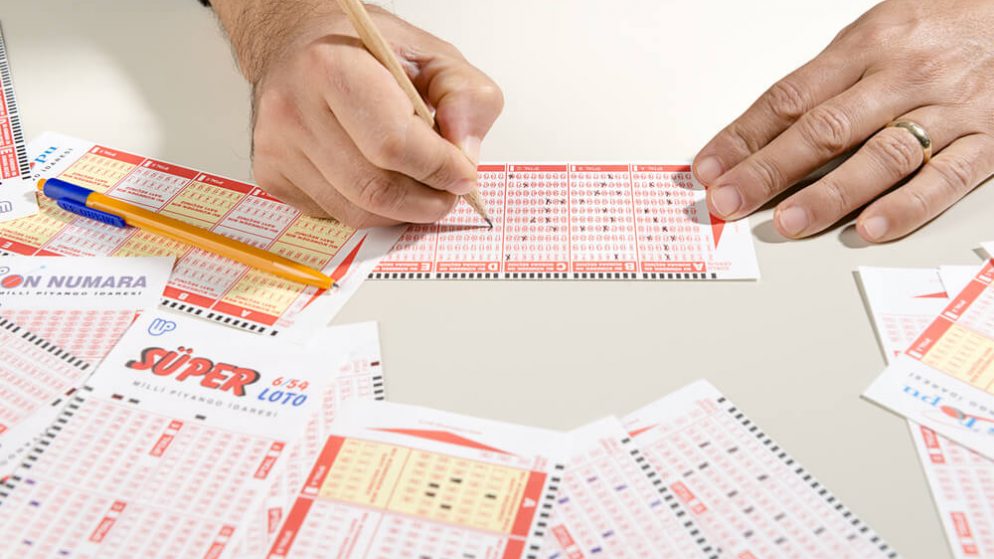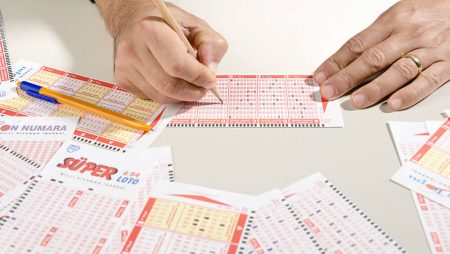

Attaining the legal age of 18 years unlocks a lot of privileges for many young people. It is generally believed that at 18 years old, an individual is of sound mind to make good choices and bear the actions of those choices. This is the theme of the ongoing campaign against problem gambling that is taking place in New Jersey.
The slogan of the campaign; “Not 18 Yet? No Bet” categorically forbids the offering of betting services to players who are below the age of 18 years. This is an initiative of the New Jersey Lottery and a great input in the fight against problem gambling. Adults have been urged to discourage gambling activity in their children.
It is believed that gambling imprints the mind and when young people explore it, it becomes even harder to quit even when they are aware of the danger it poses to them. The lottery might appear to be a harmless gambling engagement but if done by underage participants, then the dangers span into their finances and personal life.
What we cover
The people of NJ against underage gambling
Before the New Jersey Lottery team came up with the under 18 campaign, the voting majority in the state had voted to set a minimum age for people who partake in lottery games. This current campaign is therefore in support of a law that is already in place. The lottery officials are working on this campaign in association with the Council on Compulsive Gambling of New Jersey (CCGNJ).
Apart from speaking to their children about the possibility and danger of gambling addiction, the “Not 18 Yet? No Bet” campaign encourages parents to be good role models for their children. Children will in most cases copy the behavior of their parents so it is important to exercise responsible gambling because your child could be watching. It is from this background that the state law on under age gambling, N.J.S.A. 5:9-1 et seq. Section 5:9-15 prohibits the sale of lottery tickets to anyone below 18 years.
What teen gambling behaviors exist?
In line with the campaign to root out under age gambling in the state of New Jersey, the NJ Lottery has come up with brochures that parents and those in authority can read to be better equipped in their roles. According to the content in the brochure, underage gamblers are mostly inclined towards sports betting, skill-based games, lotteries and cards.
It is hard to tell just by looking at your teenager that they are involved in gambling but the lottery authorities recommend looking out for tell-tale signs such as; truancy and significant drop in academic performance, stealing money or excessive borrowing of money from family members and strangers (some kids may opt to sell of their personal items or small assets in the house to raise money) and a sudden change in the circle of friends.
Problem gambling progresses with time and it can manifest in various forms depending on how much a player is losing or gaining. If you notice that your child has expensive clothes or items that they cannot account for based on the resources available to them, it could be time to investigate problem gambling.
What do you do when you confirm that your underage child is involved in gambling?
It is hard to tell when someone is falling into gambling addiction because it can be a rather secretive process. Many parents, whose children developed this addiction at some point in their lives, share the opinion that it took a while before what was going on was discovered. The challenge is further compounded by the fact that many parents spend long hours at their places of work; children typically grow up under self-care.
Becoming aware of a gambling problem where your child is the victim can be quite frightening. It can especially be harder for parents who have never taken an interest to gambling in their life. If you stumble upon evidence or even mere gossip that your child is having a hard time shaking off gambling as a habit, the best action is to seek professional help.
The New Jersey Lottery has a gambling support hotline for anyone who feels overwhelmed by the urge to gamble. This is a service that the lottery runs throughout so that it can be of assistance to anyone regardless of when they feel that they are ready to speak out. In addition to telephone support, the lottery has provided information in the form of a brochure that people can obtain from various retail gambling spots as well as over the internet.
The executive director of CCGNJ, Felicia Grondin, recently sat at a Casino.org interview and spoke at length about underage gambling. According to her, it is illegal for a child or teenager to play the lottery regardless of how much money they have at their disposal. While the challenge with teen gambling might not be obvious to a layman, Grondin reveals that children who are below the age of 18 years have in the past been caught up in gambling addiction.
The new program on underage gambling awareness is intended to save those who are already affected and at the same time discourage those that have not started yet. According to research available to the CCGNJ, teenagers between the ages of 12 and 17 are easy prey for gambling problems.
Conclusion
Gambling problems affect the social, economic and intellectual abilities of an individual. It is often believed that adults are capable of making sound decisions but that does not work in the face of addiction. For children of school going age, gambling addiction robs them of an opportunity to make the best out of their time in school. It is no wonder that the NJ lottery has embarked on a campaign to save the children. Enforcing this law is left in the hands of the community; parents, teachers, business leaders and employees of the various gambling operators.





